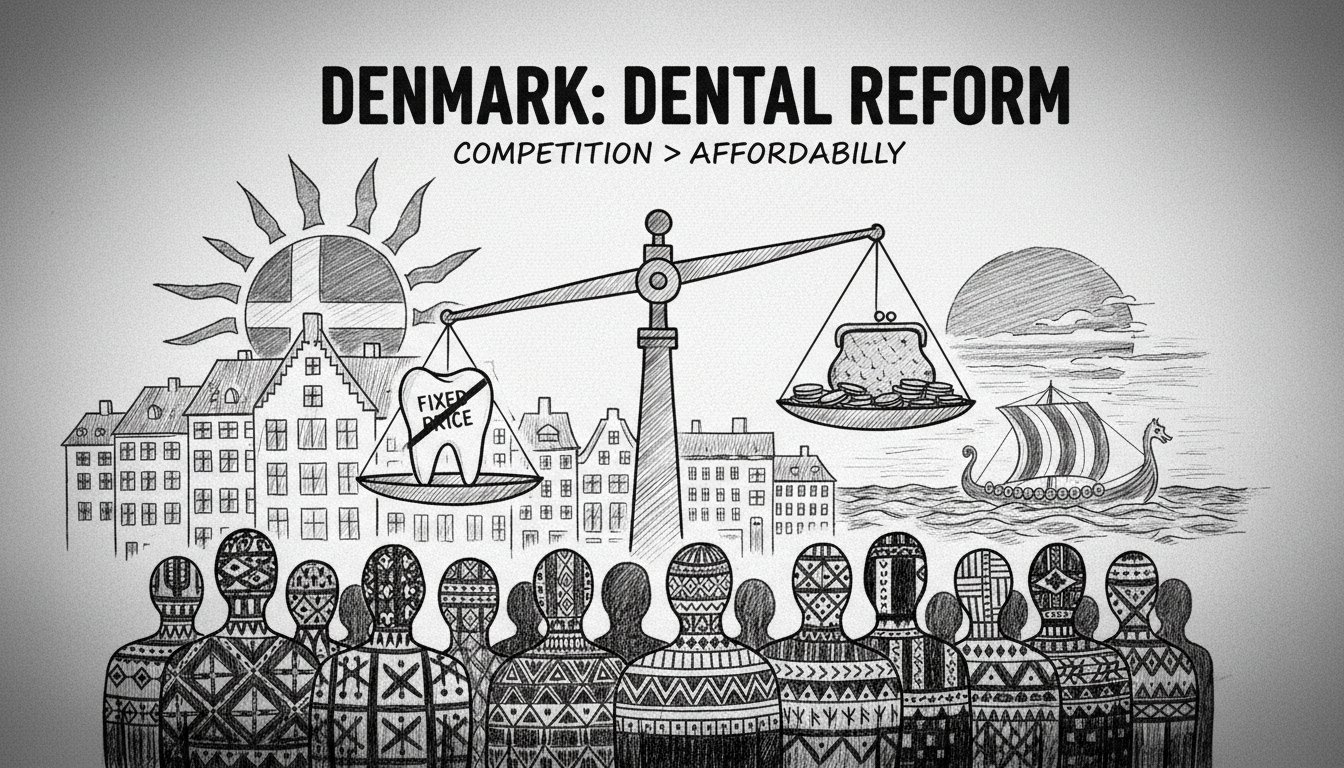Danish Health Minister Sophie Løhde wants to make dental care more affordable. She has called for political negotiations about a new model for adult dental care. The government aims to create more competition among dentists.
A working group examined competition in the dental industry during November negotiations. Their report shows dental treatment prices increased 19.5 percent between 2018 and 2024. General healthcare prices rose only 12.2 percent during the same period.
The minister believes more competition should lead to lower prices. She says this would help more Danes visit dentists regularly. The report suggests eliminating fixed prices for dental services.
Many common dental treatments currently have set prices. These include checkups, cleanings, and X-rays. The analysis suggests allowing price reductions and discounts would strengthen competition. Maximum prices would replace fixed pricing instead.
Health economist Marie Kruse from University of Southern Denmark doubts the measure will work. She says Denmark lacks enough dentists. She questions whether prices would drop even with completely free pricing.
A dental association survey shows Denmark needs about 100 dentists nationwide. The consumer council Think believes freeing prices would benefit consumers. They support the maximum price idea.
The council's chief economist says moving from price control to competition helps consumers. But the Dental Association remains skeptical about the proposed changes.
Association chairman Torben Schønwaldt calls dental care a health service rather than a consumer product. He questions making it about competition. He doubts ending fixed prices would have any effect. He claims current prices are already at an artificially low level.
This debate reflects broader tensions in Denmark's healthcare system. The country maintains strong public healthcare but faces cost pressures. Dental care sits in a complicated middle ground between public and private services.
Many Danes pay substantial out-of-pocket costs for dental work. The proposed changes could make routine care more accessible. But dentist shortages might limit any price benefits.
International readers should understand Denmark's hybrid healthcare model. Basic medical care is tax-funded and largely free. Dental care for adults operates more like a private market with some regulation.
The government's push comes amid broader cost-of-living concerns. Dental expenses often burden middle-income families who don't qualify for subsidies but struggle with high costs.
The real test will be whether competition can overcome structural shortages. More dentists might be needed before price competition can truly benefit consumers.

